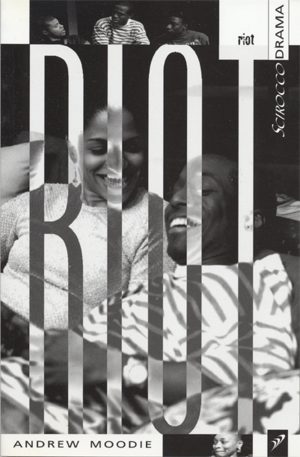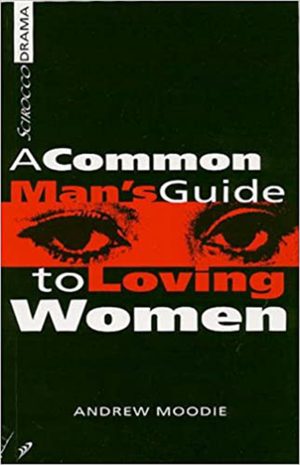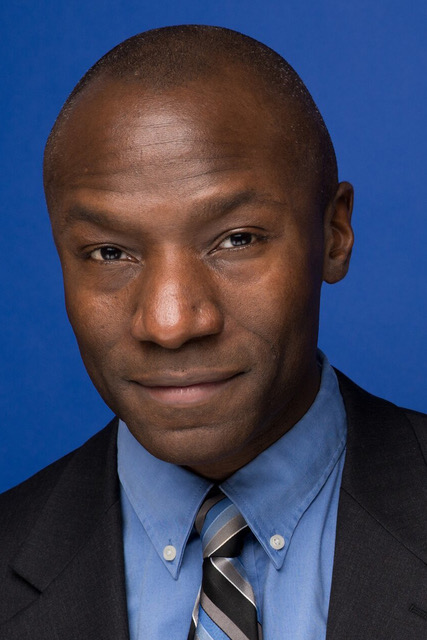Posted February 7, 2023
The Interview – Andrew Moodie
Andrew Moodie
Andrew Moodie is an Ottawa-born and raised actor, writer, educator, and director with extensive stage, film, and television credits. His plays include: Riot (which won the 1996 Chalmers Canadian Play Award,) Oui, Wilbur County Blues, A Common Man’s Guide to Loving Women, The Lady Smith, The Real McCoy, and Toronto the Good (which was nominated for the Dora Mavor Moore Award for Outstanding New Play). Andrew also wrote for the acclaimed CBC Radio series Afghanada.
Andrew, in plays such as Riot and Toronto the Good, you combine relatable characters and intriguing situations with serious issues. Would you say that you write “political theatre”? Do you set out with the intent of sparking larger conversations?
Absolutely! I love political theatre. I saw Shaw’s Major Barbara on PBS when I was a teenager, and I was blown away with how deftly Shaw dealt with major political issues and made them entertaining! And of course, Shakespeare’s political plays have some very dangerous ideas for his time. How he escaped prison for some of the sly criticisms of King James in the Macduff and Malcolm scene I have no idea. Ben Johnson wasn’t as clever and was thrown into jail for some play called Isle of Dogs. And people complain about cancel culture now?
Most of us have heard the expression “the real McCoy,” but few know that it refers to Elijah McCoy, a Black inventor born in Chatham who revolutionized the transportation industry. Your play about McCoy is scheduled for production at the Blyth Festival this summer. What can you tell us about that? Will you be involved in the show?
To be fair, it’s impossible to know exactly where the phrase “the real McCoy” originated, but it made sense to me that we would not know about Elijah as the source of the phrase because of racism. And of course, there are lots of internet trolls who try to diminish his accomplishments. But the play is actually about the nature of entropy. It’s the second law of thermodynamics. It’s very complicated to explain in any way a physicist would be happy with, but for those of us who are not studying quantum physics, think of it as the law of the universe that says that everything decays. The example that scientists always bring up is that a cup of tea never gets hotter sitting on the counter of your kitchen. Everything moves from order to chaos. For me, racism is a kind of chaos. We may never eliminate racism, but we must always fight against it, just as we must always fight against entropy. And I use Elijah’s life as a metaphor for entropy. And yes, I will be directing the play at Blyth.
Riot centres around a group of Black roommates in Toronto during the time of the Rodney King verdict and the resulting civil unrest in Los Angeles. Riot was a sensation when it debuted in 1995, and it won the Chalmers Canadian Play Award. Do you think that the play is relevant in today’s political landscape? Are there any plans for a new production of it?
Well, funny you should ask. An announcement will be made very soon about Riot. Can’t tell you anything just yet but watch this space. And yes, Riot is still unfortunately relevant. When I wrote the play, it was actually more of a history piece. By the time the play was performed, society had already shifted in so many ways, toward where we are now.
Andrew, in addition to being a playwright, an actor, and a director, you are also a teacher. Where do you teach, and what do you like about teaching?
I teach Auditioning for Camera at the Toronto Film School and I love teaching. I find it therapeutic. I’m not the best auditioner in the world, but I have a fairly good track record getting film work and I like to pass on what I’ve learned. And the biggest lesson that I pass on is that your mental health is more important than that big audition. It’s more important than any acting job. Ironically, I hate auditioning, but I love teaching it.
Are you working on a new script at the moment? If so, can you tell us something about it?
I am writing a play about Artificial Intelligence and race. As you can see in the news, AI is now entering the lives of average people and I’m very concerned about how racial bias is being coded into the computers we use every day and are connected to every aspect of our lives.
You’ve played many memorable roles through the years. What are some of your favourites? I can’t choose a single favourite, but I really did love my last role on stage in the Pleiades theatre production of Lessons in Forgetting by Emma Haché. Really loved it. But my daughters probably loved my role in the television series The Boys… because my head explodes.
-
 Riot$9.99 – $14.95
Riot$9.99 – $14.95 -
 A Common Man’s Guide to Loving Women$12.95
A Common Man’s Guide to Loving Women$12.95

